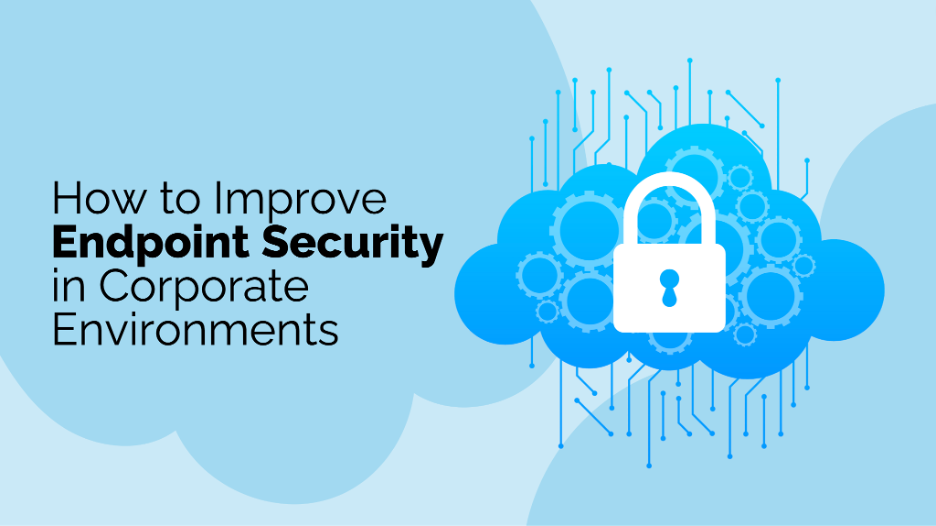04 December 2023
How to Improve Endpoint Security in Corporate Environments
We live in a world that's more connected than ever. But this convenience also opens the door to new security challenges, where endpoint security comes into play. Endpoint security is about safeguarding the devices we use daily, like smartphones, laptops, and tablets — anything that connects to your network. This becomes paramount as we juggle between our personal and work devices, which could potentially invite cyber threats if not appropriately secured.
To tackle this, businesses need to prioritize endpoint security. This blog explores the importance of endpoint security and common challenges. We’ll also cover how solutions like Microsoft Defender can be a game-changer in your security strategy, and how partners like VoicePlus can help you manage it all.
Understanding Endpoint Security
Endpoint security is all about protecting the 'endpoints' in your network. But what exactly are these endpoints? They're essentially any device that connects to your network — think of your laptops, smartphones, and tablets. In a corporate setting, these devices are often the portals through which employees access company data, making them potential entry points for cyber threats.
Endpoint security ensures these devices are fortified against such threats. It's like having a digital fortress around each device that keeps the bad guys out. When an endpoint is secure, it means that even if a cyber threat tries to infiltrate the network through a device, it would get stopped in its tracks.
With remote work becoming increasingly common, endpoint security has become even more critical. Because employees access company data from various locations and devices, robust endpoint security is needed more than ever. By investing in strong endpoint security measures, businesses can protect their networks and ensure their sensitive data stays out of the wrong hands.
Challenges in Endpoint Security
Endpoint security presents several challenges for businesses. The proliferation of devices connecting to a network, each representing a potential entry point for cyber threats, can be overwhelming. The shift towards remote work has added complexity, with employees accessing company data from various locations and on personal devices that may lack adequate security measures. Furthermore, cyber threats are becoming increasingly sophisticated, with hackers constantly devising new ways to bypass security measures.
Strategies to Improve Endpoint Security
To counter these challenges, businesses can adopt several strategies. Regular patching and updates are crucial to address security vulnerabilities in software. Strong access controls can also ensure that only authorized individuals have access to certain data or areas of the network.
Training employees about cybersecurity best practices can significantly reduce the risk of security breaches, as many cyber threats exploit human errors. A well-informed team can act as the first line of defense against cyber-attacks.
Deep Dive: Microsoft Defender for Android and iOS
Mobile device security is often overlooked in corporate environments, despite the unique vulnerabilities that mobile platforms face. To address this gap, Microsoft offers Defender for Endpoint on Android and iOS, a comprehensive Mobile Threat Defense solution (MTD).
- Key Capabilities of Microsoft Defender for Endpoint on Android and iOS
- Web Protection: Anti-phishing, unsafe network blocking, support for custom threat indicators.
- Malware Protection: Scans for malicious apps on Android devices.
- Jailbreak Detection: Identifies jailbroken iOS devices.
- Microsoft Defender Vulnerability Management (MDVM): Assesses vulnerabilities of onboarded mobile devices.
- Network Protection: Shields against rogue Wi-Fi threats, rogue certificates, and allows root CA list in Intune.Unified Alerting: Consolidates alerts from all platforms in the M365 security console.
- Conditional Access and Conditional Launch: Blocks risky devices from accessing corporate resources using risk signals.
- Privacy Controls: Configurable privacy settings in threat reports to control data sent by Microsoft Defender.
- Integration with Microsoft Tunnel: Enables security and connectivity in a single app through VPN gateway solution integration.
Leveraging VoicePlus Expertise for Robust Endpoint Security
Navigating the complexities of protecting many devices and platforms can be challenging. Microsoft Defender for Endpoint on Android and iOS offers a comprehensive solution addressing these concerns, from anti-phishing capabilities to integrated VPN solutions.
However, implementing and managing these solutions requires expertise. With a deep understanding of endpoint security and proficiency in deploying Microsoft's security solutions, VoicePlus can assist businesses in fortifying defenses, ensuring data safety, and, ultimately, achieving peace of mind in this digital era. Trust VoicePlus to guide you through the maze of endpoint security, delivering a safer and more secure mobile environment for your business.
Contact VoicePlus today to learn how we can help you secure your network and protect your sensitive data.
3 Strategies to Reduce Telecom Cost





